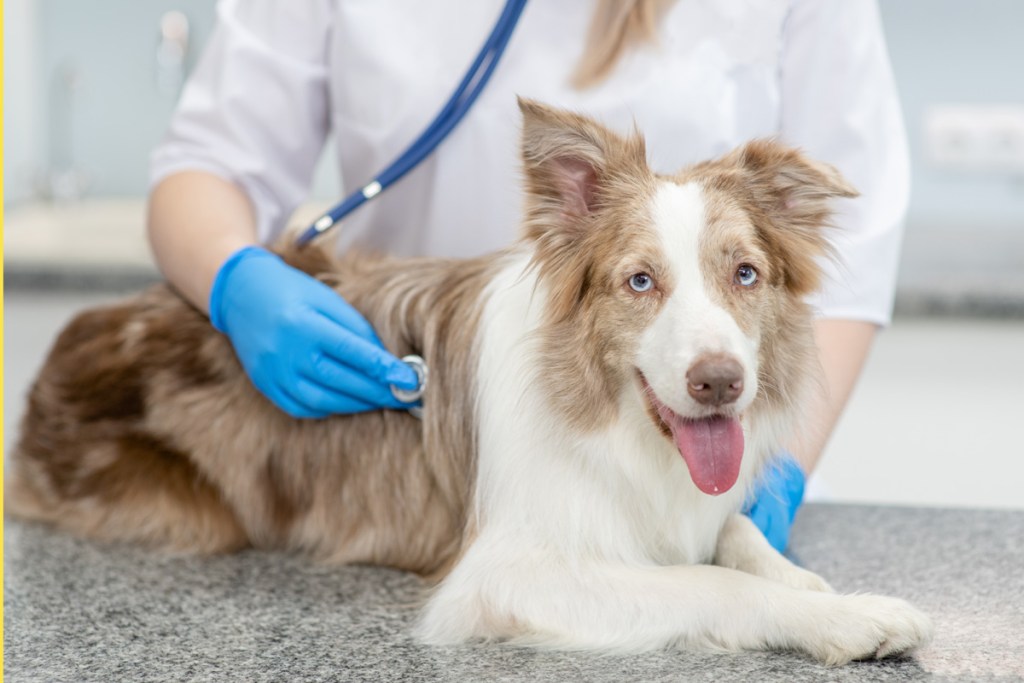We love our pets and want to do what’s best for them, and that includes taking care of their health needs. Those medical expenses include annual health checks, vaccinations, and flea, tick, and heartworm preventatives. According to the American Pet Products Association, pet owners in the U.S. spent $31.4 billion on vet care and health products in 2020. With the cost of veterinary care so high, it’s easy to understand why pet parents turn to online pet pharmacies to fill prescriptions or buy products. Every week, online pet pharmacies offer pet meds online and health products for less than you typically pay at your veterinarian’s office. However, pet parents shouldn’t jump on these bargains without doing some research.
According to the U.S. Food and Drug Administration (FDA), although many legitimate online veterinary pharmacies exist, others operate without FDA approval. Just as with other websites, you should know what red flags to look for so that you can protect yourself and your pet. Experts at the American Veterinary Medical Association say that some illegal online pet pharmacies may sell medicines that are counterfeit, outdated, mislabeled, incorrectly formulated, or improperly made or stored. These medicines may not contain the actual drug, may contain contaminants or the incorrect amount of drug, or may not work as well due to age or being stored incorrectly.

How to tell if an online pet pharmacy is reputable
Speak with your veterinarian
Start with your trusted veterinarian, who will understand that you’re on a budget and need to shop around for cheaper medications or health care products. Ask, for instance, if your veterinarian trusts the online pharmacy you plan to use. Ask if she has ever worked with the pharmacy or has clients who have used the site. Typically, vets will write prescriptions for clients to send to reputable online pet pharmacies and so will be aware of the different online sites.
Does the website require a veterinarian’s prescription?
Ordering medication online still requires a prescription from your veterinarian. A reputable online pharmacy should insist on veterinary permission before selling you a prescription medication. Websites that sell prescription veterinary medicines without requiring a veterinarian’s prescription are breaking the law, according to the FDA.
Where is the online pharmacy licensed?
U.S. pharmacies must be licensed by the state board of pharmacy or similar agency in the state where they are based and where they fill prescriptions. The FDA offers information on how to track down pharmacy license information for each state.
Check for a seal of approval
Check the website for the seal indicating that the site is accredited as a Vet-VIPPS (Veterinary-Verified Internet Pharmacy Practice Site) pharmacy. This is a voluntary accreditation program of the National Association of Boards of Pharmacy (NABP), which requires rigid standards in the preparation and dispensing of medicines. If the online pet pharmacy operates in the U.S., pet parents can check the NABP website to see if it’s on the list of Accredited Digital Pharmacies.
Where is the pharmacy located?
If the online pharmacy doesn’t have a business address with a phone number or other contact information, then that’s cause for concern. Legitimate pharmacies will list business addresses and provide contact information.
Can you speak with a licensed pharmacist?
If you have questions about your pet’s medicines, is there a licensed pharmacist available to speak with you? Some online pharmacies may not be prepared to answer your questions and have limited knowledge about medicines for animals, according to the FDA.
Pets should visit a vet before starting prescription medications
Just because you can order medications online doesn’t mean you should skip annual physicals for your dog. Veterinary experts caution that whenever pets need prescription medication, it’s essential for the pet to have a complete physical examination so the proper medication can be dispensed. In addition, annual blood tests need to be performed before renewing such products as heartworm preventive medication. According to veterinarian Clarke Atkins in a Today’s Veterinary Practice article, if left undiagnosed, heartworm infections damage pulmonary, vascular, renal, and cardiac tissues. Identifying and eliminating the infection as soon as possible — with the right medicine — lessens the amount of damage to these vital tissues.

Pet owners shouldn’t automatically assume they will save money by purchasing medications online rather than through a veterinarian. Many veterinary practices pass along manufacturer’s promotions and rebates to their clients, which can result in significant savings. It’s worth checking with your trusted animal hospital before turning to an online pet pharmacy.



